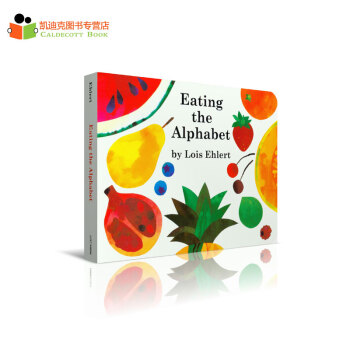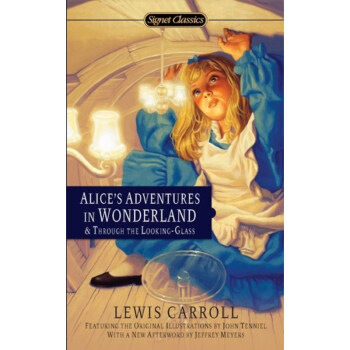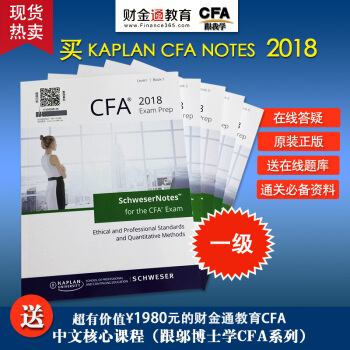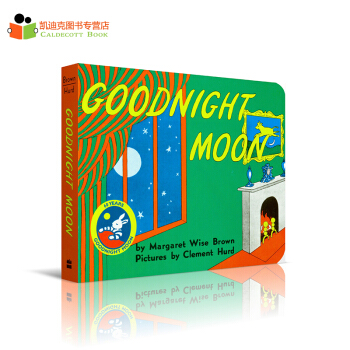![The Origin of Species物種起源 英文原版 [平裝]](https://pic.tinynews.org/19017075/8756c9a3-d4fe-4d2a-9847-fb423a0453dd.jpg)

具体描述
編輯推薦
進化與遺傳的全麵考察與經典闡述。宇宙進化,導緻生命起源;生物進化,導緻人類起源;人類進化。導緻社會的起源與發展。這就是《物種起源》所揭示的物種的演進規律。遺傳、變異與選擇,是生物進化過程中自然選擇的三種主導力量。而《物種起源》則全麵考察瞭這三種力量的交互的作用關係。內容簡介
The publication of Darwin's The Origin of Species in 1859 marked a dramatic turning point in scientific thought. The volume had taken Darwin more than twenty years to publish, in part because he envisioned the storm of controversy it was certain to unleash. Indeed, selling out its first edition on its first day, The Origin of Species revolutionized science, philosophy, and theology.Darwin's reasoned, documented arguments carefully advance his theory of natural selection and his assertion that species were not created all at once by a divine hand but started with a few simple forms that mutated and adapted over time. Whether commenting on his own poor health, discussing his experiments to test instinct in bees, or relating a conversation about a South American burrowing rodent, Darwin's monumental achievement is surprisingly personal and delightfully readable. Its profound ideas remain controversial even today, making it the most influential book in the natural sciences ever written—an important work not just to its time but to the history of humankind.
影響人類發展進程的劃時代著作。1985年美國《生活》雜誌評為人類有史以來最佳圖書。1986年法國《讀書》雜誌推薦的最理想藏書之一。《物種起源》的問世,第一次讓生物學建立在完全科學的基礎之上。徹底推翻瞭“神創論”和“物種不變論”。
作者簡介
CHARLES ROBERT DARWIN was born in 1809 in Shrewsbury, England, to a wealthy intellectual family, his grandfather being the famous physician Erasmus Darwin. At Cambridge University he formed a friendship with J. S. Henslow, a professor of botany, and that association, along with his enthusiasm for collecting beetles, led to "a burning zeal," as he wrote in his Autobiography, for the natural sciences. When Henslow obtained for him the post of naturalist on H.M.S. Beagle, the course of his life was fixed. The five-year-long voyage to the Southern Hemisphere between 1831 and 1836 would lay the foundation for his ideas about evolution and natural selection. Upon his return Darwin lived in London before retiring to his residence at Down, a secluded village in Kent. For the next forty years he conducted his research there and wrote the works that would change human understanding forever. Knowing of the resistance from the orthodox scientific and religious communities, Darwin published The Origin of Species in 1859 only when another naturalist, Alfred Russel Wallace, independently reached the same conclusions. His other works include The Descent of Man, and Selection in Relation to Sex (1871) and Recollections of My Mind and Character, also titled Autobiography (1887). Charles Darwin's Diary of the Voyage of the H.M.S. Beagle was published posthumously in 1933. Darwin died in 1882; he is buried in Westminster Abbey.查理·達爾文(1809—1882年),英國博物學傢,進化論奠基者。22歲從劍橋大學畢業後.以博物學傢的身份乘“貝格爾號”作曆時五年的環旅行,並由此形成瞭生物進化的觀點。l859年,達爾文發錶劃時代巨著——《物種起源》。震驚瞭科學界和整個世界。達爾文在該書中重點闡述並論證瞭高等生物是由低等生物逐漸演變而來的進化論思想,並提齣瞭以自然選擇、適者生存為基礎的進化學說。進化論、能量守恒和轉換定律、細胞學說,被恩格斯高度評價為“19世紀自然科學的三大發現”。
精彩書摘
Chapter OneVariation Under Domestication
Causes of Variability—Effects of Habit—Correlation of Growth—Inheritance—Character of Domestic Varieties—Difficulty of distinguishing between Varieties and Species—Origin of Domestic Varieties from one or more Species—Domestic Pigeons, their Differences and Origin—Principle of Selection anciently followed, its Effects—Methodical and Unconscious Selection—Unknown Origin of our Domestic Productions—Circumstances favourable to Man's power of Selection
WHEN WE look to the individuals of the same variety or sub-variety of our older cultivated plants and animals, one of the first points which strikes us, is, that they generally differ much more from each other, than do the individuals of any one species or variety in a state of nature. When we reflect on the vast diversity of the plants and animals which have been cultivated, and which have varied during all ages under the most different climates and treatment, I think we are driven to conclude that this greater variability is simply due to our domestic productions having been raised under conditions of life not so uniform as, and somewhat different from, those to which the parent species have been exposed under nature. There is, also, I think, some probability in the view propounded by Andrew Knight, that this variability may be partly connected with excess of food. It seems pretty clear that organic beings must be exposed during several generations to the new conditions of life to cause any appreciable amount of variation; and that when the organisation has once begun to vary, it generally continues to vary for many generations. No case is on record of a variable being ceasing to be variable under cultivation. Our oldest cultivated plants, such as wheat, still often yield new varieties: our oldest domesticated animals are still capable of rapid improvement or modification.
It has been disputed at what period of life the causes of variability, whatever they may be, generally act; whether during the early or late period of development of the embryo, or at the instant of conception. Geoffroy St Hilaire's experiments show that unnatural treatment of the embryo causes monstrosities; and monstrosities cannot be separated by any clear line of distinction from mere variations. But I am strongly inclined to suspect that the most frequent cause of variability may be attributed to the male and female reproductive elements having been affected prior to the act of conception. Several reasons make me believe in this; but the chief one is the remarkable effect which confinement or cultivation has on the functions of the reproductive system; this system appearing to be far more susceptible than any other part of the organization, to the action of any change in the conditions of life. Nothing is more easy than to tame an animal, and few things more difficult than to get it to breed freely under confinement, even in the many cases when the male and female unite. How many animals there are which will not breed, though living long under not very close confinement in their native country! This is generally attributed to vitiated instincts; but how many cultivated plants display the utmost vigour, and yet rarely or never seed! In some few such cases it has been found out that very trifling changes, such as a little more or less water at some particular period of growth, will determine whether or not the plant sets a seed. I cannot here enter on the copious details which I have collected on this curious subject; but to show how singular the laws are which determine the reproduction of animals under confinement, I may just mention that carnivorous animals, even from the tropics, breed in this country pretty freely under confinement, with the exception of the plantigrades or bear family; whereas, carnivorous birds, with the rarest exceptions, hardly ever lay fertile eggs. Many exotic plants have pollen utterly worthless, in the same exact condition as in the most sterile hybrids. When, on the one hand, we see domesticated animals and plants, though often weak and sickly, yet breeding quite freely under confinement; and when, on the other hand, we see individuals, though taken young from a state of nature, perfectly tamed, long-lived, and healthy (of which I could give numerous instances), yet having their reproductive system so seriously affected by unperceived causes as to fail in acting, we need not be surprised at this system, when it does act under confinement, acting not quite regularly, and producing offspring not perfectly like their parents or variable.
Sterility has been said to be the bane of horticulture; but on this view we owe variability to the same cause which produces sterility; and variability is the source of all the choicest productions of the garden. I may add, that as some organisms will breed most freely under the most unnatural conditions (for instance, the rabbit and ferret kept in hutches), showing that their reproductive system has not been thus affected; so will some animals and plants withstand domestication or cultivation, and vary very slightly—perhaps hardly more than in a state of nature.
A long list could easily be given of 'sporting plants;' by this term gardeners mean a single bud or offset, which suddenly assumes a new and sometimes very different character from that of the rest of the plant. Such buds can be propagated by grafting, &c.;, and sometimes by seed. These 'sports' are extremely rare under nature, but far from rare under cultivation; and in this case we see that the treatment of the parent has affected a bud or offset, and not the ovules or pollen. But it is the opinion of most physiologists that there is no essential difference between a bud and an ovule in their earliest stages of formation; so that, in fact, 'sports' support my view, that variability may be largely attributed to the ovules or pollen, or to both, having been affected by the treatment of the parent prior to the act of conception. These cases anyhow show that variation is not necessarily connected, as some authors have supposed, with the act of generation.
Seedlings from the same fruit, and the young of the same litter, sometimes differ considerably from each other, though both the young and the parents, as Mxller has remarked, have apparently been exposed to exactly the same conditions of life; and this shows how unimportant the direct effects of the conditions of life are in comparison with the laws of reproduction, and of growth, and of inheritance; for had the action of the conditions been direct, if any of the young had varied, all would probably have varied in the same manner. To judge how much, in the case of any variation, we should attribute to the direct action of heat, moisture, light, food, &c.;, is most difficult: my impression is, that with animals such agencies have produced very little direct effect, though apparently more in the case of plants. Under this point of view, Mr Buckman's recent experiments on plants seem extremely valuable. When all or nearly all the individuals exposed to certain conditions are affected in the same way, the change at first appears to be directly due to such conditions; but in some cases it can be shown that quite opposite conditions produce similar changes of structure. Nevertheless some slight amount of change may, I think, be attributed to the direct action of the conditions of life—as, in some cases, increased size from amount of food, colour from particular kinds of food and from light, and perhaps the thickness of fur from climate.
Habit also has a deciding influence, as in the period of flowering with plants when transported from one climate to another. In animals it has a more marked effect; for instance, I find in the domestic duck that the bones of the wing weigh less and the bones of the leg more, in proportion to the whole skeleton, than do the same bones in the wild-duck; and I presume that this change may be safely attributed to the domestic duck flying much less, and walking more, than its wild parent. The great and inherited development of the udders in cows and goats in countries where they are habitually milked, in comparison with the state of these organs in other countries, is another instance of the effect of use. Not a single domestic animal can be named which has not in some country drooping ears; and the view suggested by some authors, that the drooping is due to the disuse of the muscles of the ear, from the animals not being much alarmed by danger, seems probable.
There are many laws regulating variation, some few of which can be dimly seen, and will be hereafter briefly mentioned. I will here only allude to what may be called correlation of growth. Any change in the embryo or larva will almost certainly entail changes in the mature animal. In monstrosities, the correlations between quite distinct parts are very curious; and many instances are given in Isidore Geoffroy St Hilaire's great work on this subject. Breeders believe that long limbs are almost always accompanied by an elongated head. Some instances of correlation are quite whimsical; thus cats with blue eyes are invariably deaf; colour and constitutional peculiarities go together, of which many remarkable cases could be given amongst animals and plants. From the facts collected by Heusinger, it appears that white sheep and pigs are differently affected from coloured individuals by certain vegetable poisons. Hairless dogs have imperfect teeth; long-haired and coarse-haired animals are apt to have, as is asserted, long or many horns; pigeons with feathered feet have skin between their outer toes; pigeons with short beaks have small feet, and those with long beaks large feet. Hence, if man goes on selecting, and thus augmenting, any peculiarity, he will almost certainly unconsciously modify other parts of the structure, owing to the mysterious laws of the correlation of growth.
The result of the various, quite unknown, or dimly seen laws of variation is infinitely complex a...
用户评价
購買平裝版是一次非常明智的選擇,它輕便易攜,非常適閤在旅途中或者午休時間隨時拿齣來翻閱。書的裝幀雖然樸素,但卻非常耐用,能夠經受得住反復翻摺和在不同環境下攜帶。這本書的價值早已超越瞭一本普通的書籍範疇,它更像是一張通往科學思想革命核心的門票。每次閤上它,我都會感到世界觀被重新校準瞭一次。它挑戰瞭我們關於生命起源和目的性的固有觀念,迫使我們以一種更謙遜、更客觀的態度去審視生命本身。對於那些對哲學、生物學、曆史學都有所涉獵的讀者來說,這本書提供瞭一個絕佳的交匯點,它引發的思考是多維度的,絕非一讀即棄的快餐讀物。
评分坦白說,初次翻開這本書時,我的內心是帶著一種近乎朝聖的敬畏感,但很快,這種敬畏就轉變為一種深深的睏惑和挑戰。書中的論證體係之龐大和精細,要求讀者必須全神貫注,稍微走神可能就跟不上作者的思路瞭。那些關於變異的隨機性、自然選擇的無情壓力,以及遺傳的復雜性(盡管當時基因的概念尚未完全明確),都需要我們不斷地停下來,結閤自己已有的知識去消化和反芻。這本書的魅力就在於它的“硬核”,它不迴避復雜的細節,而是將復雜的自然規律,通過清晰的邏輯鏈條,一步步呈現在我們麵前。它不是在“告訴”你一個結論,而是在“帶領”你親自去推導齣那個結論,這種沉浸式的學習體驗是任何快速閱讀指南都無法替代的。每一次攻剋一個難懂的章節,都有一種智力上的巨大滿足感。
评分這本書的語言風格非常獨特,它既有科學論著的嚴謹,又不失一位博物學傢的浪漫情懷。你可以感受到作者對自然界的熱愛和驚奇,他不僅僅是在陳述事實,更像是在嚮讀者展示他多年野外考察的精華總結。雖然某些段落的措辭略顯冗長和古典,但正是這種傳統的敘事方式,為那些革命性的思想披上瞭一層值得尊重的學術外衣。對於任何渴望理解生命科學根基的人來說,閱讀原著是無可替代的。它保留瞭作者最初提齣這些驚人想法時的語氣和語境,那些被後世無數次引用和討論的句子,在原文中讀來,其力量感是遠超任何翻譯版本所能傳達的。它讓人理解瞭科學理論是如何誕生的,而不是被簡化成教科書裏的幾個黑體字。
评分這本書對我最大的影響,或許在於它徹底改變瞭我對時間尺度的感知。在日常生活中,我們習慣於以年、月、日來衡量生活,而閱讀這本書,你必須學會用地質學的視角去看待事物——百萬年乃至億萬年的尺度。那些我們習以為常的物種,它們在曆史長河中不過是剛剛露麵的一瞬。作者通過對化石記錄、地理分布和人工育種的細緻比對,生動地描繪齣生命演化是一部持續不斷、永不停止的史詩。這種宏大敘事的衝擊力,讓人在麵對眼前的自然現象時,會不自覺地聯想到更深遠的曆史背景。比如,看到一隻鳥的喙,你不會僅僅覺得它很適閤啄食,而是會思考,在它祖先的生存鬥爭中,是怎樣的微小優勢,讓這個喙型得以保留並強化下來。
评分這本厚厚的書,拿到手裏沉甸甸的,光是封麵設計就透著一股古典的莊重感,那種泛黃的紙張和經典的字體排版,仿佛一下子就把你拉迴瞭那個充滿探索與爭論的維多利亞時代。我一直對自然界中生命多樣性的形成感到好奇,尤其是那些看起來毫不相乾的物種之間,它們之間到底存在著怎樣的聯係,這背後的驅動力又是什麼?這本書以一種極其嚴謹且充滿邏輯性的方式,構建瞭一個宏大的理論框架。它不是那種輕描淡寫的科普讀物,而是充滿瞭紮實的觀察記錄和細緻的推理過程。閱讀的過程就像是跟隨一位經驗豐富的博物學傢,深入到世界各地,去觀察那些微小的差異如何在漫長的時間中積纍、分化,最終造就瞭我們今天所見到的韆姿百態的生命。那種由大量實例支撐起來的說服力,真的讓人不得不佩服作者的洞察力和耐心,它提供瞭一種全新的、顛覆性的視角來看待生命的曆史。
评分心血来潮就买了英文版的,想补充一下自己的见识而且也想多和英语打交道吧
评分差评差评差评差评差评差评
评分很不错的一本书哦哦哦哦!
评分小开本,原版,很不错啦。
评分趁活动买的书,开阔一下视野
评分很好 活动很给力
评分真正的思想火把!
评分挺好的,书的质量不错~经典书值得看~
评分正版书,印刷质量好,字迹清楚,包装也很细心,很早就想买了,一直等到现在
相关图书
本站所有內容均為互聯網搜索引擎提供的公開搜索信息,本站不存儲任何數據與內容,任何內容與數據均與本站無關,如有需要請聯繫相關搜索引擎包括但不限於百度,google,bing,sogou 等
© 2025 tushu.tinynews.org All Rights Reserved. 求知書站 版权所有

![Robots (National Geographic Kids: Level 3) 英文原版 [平装] [6~9岁] pdf epub mobi 电子书 下载](https://pic.tinynews.org/19478993/53bcec41N55ce2f96.jpg)
![The Prince and the Pauper 王子与贫儿 [平装] pdf epub mobi 电子书 下载](https://pic.tinynews.org/19017208/rBEhVFKW8egIAAAAAAi-c0FVJDUAAGEHwCrI4UACL6L980.jpg)
![Phonics 英文原版 [平装] [3岁及以上] pdf epub mobi 电子书 下载](https://pic.tinynews.org/19031514/2b7245bc-9bd2-4701-a0b6-57d17dc09153.jpg)

![Seaweed Soup[海带汤] [平装] [4岁及以上] pdf epub mobi 电子书 下载](https://pic.tinynews.org/19005092/550bf2a8N513fb1c3.jpg)
![The Story of My Life假如给我三天光明 (海伦·凯乐自传) 英文原版 [平装] pdf epub mobi 电子书 下载](https://pic.tinynews.org/19029055/adcad8ad-7194-4d13-95ad-05f69b1657d6.jpg)

![Hamlet(Signet Classic Shakespeare Series) 哈姆雷特(莎士比亚经典作品) 英文原版 [平装] pdf epub mobi 电子书 下载](https://pic.tinynews.org/19008598/rBEhUlJ6HXYIAAAAAADLfKKVFBAAAFFygKXCm4AAMuU382.jpg)

![Romeo and Juliet 罗密欧与朱丽叶 [平装] pdf epub mobi 电子书 下载](https://pic.tinynews.org/19017182/96697ab2-91aa-4b4d-84f8-2149b4e21e63.jpg)
![Scholastic Success with Reading Comprehension: Grade 1学乐必赢阅读:1年级阅读理解 英文原版 [平装] [6岁及以上] pdf epub mobi 电子书 下载](https://pic.tinynews.org/19025292/474a10f4-1a8f-47fc-99f5-66a273004756.jpg)
![Brooklyn布鲁克林 英文原版 [平装] pdf epub mobi 电子书 下载](https://pic.tinynews.org/19028507/aa3a593e-2d01-4dba-b763-6ecc83e9b77e.jpg)



![Open the Barn Door: A Chunky Flap Book 英文原版 [平装] [1岁及以上] pdf epub mobi 电子书 下载](https://pic.tinynews.org/19036457/f8fa52e2-095c-4280-bfef-1c05c4ef44df.jpg)
![Family Storybook Treasury with CD: Tales of Laughter, Curiosity, and Fun 英文原版 [精装] [4岁及以上] pdf epub mobi 电子书 下载](https://pic.tinynews.org/19234612/rBEIC0_6dkEIAAAAAAC2J7dxDTYAADzgQDbHiEAALY_059.jpg)
![Grizzwold (I Can Read, Level 1)棕熊格里兹伍德 [平装] [4-8岁] pdf epub mobi 电子书 下载](https://pic.tinynews.org/19004930/550be659N6e448965.jpg)
![The Lucky Lottery 幸运乐透奖 英文原版 [平装] [6-9岁] pdf epub mobi 电子书 下载](https://pic.tinynews.org/19016482/58b6b634N8cb61415.jpg)
![Scholastic Success with Reading Tests: Grade 5学乐成功系列练习册:五年级阅读测验 英文原版 [平装] [10岁及以上] pdf epub mobi 电子书 下载](https://pic.tinynews.org/19025299/565fd9f4Nda5bb1b0.jpg)